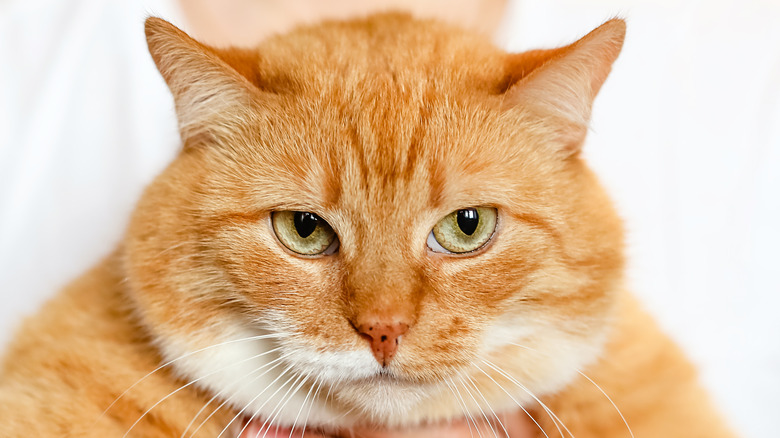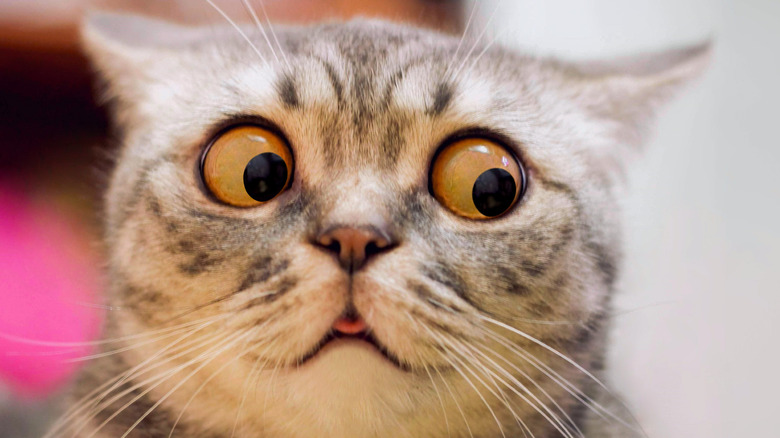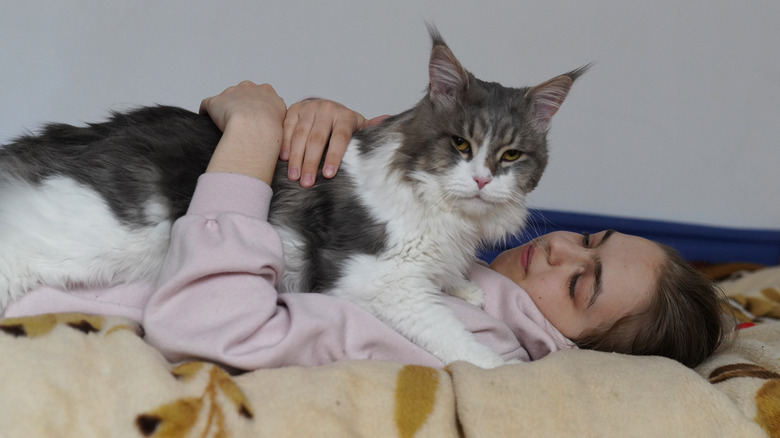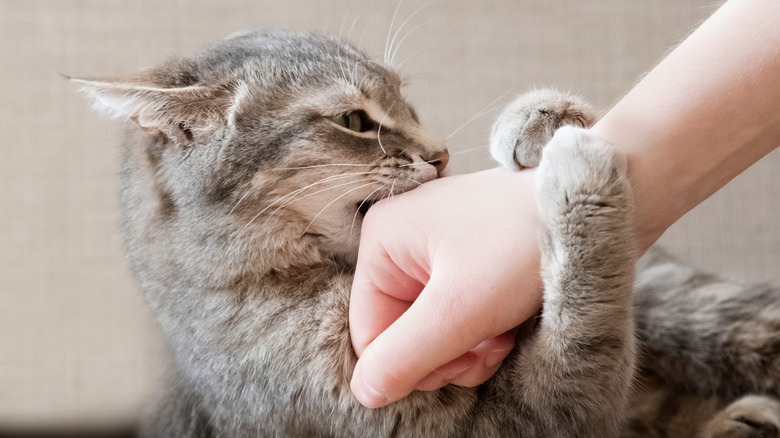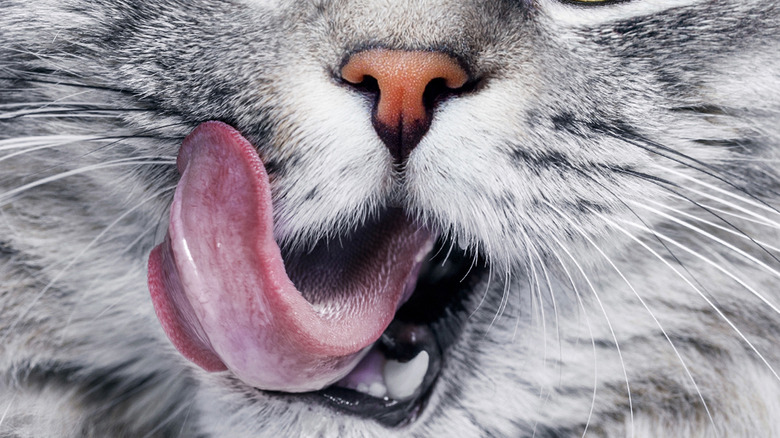Do Cats Really Eat Their Owners If They Die?
The honorary title of man's best friend has long been afforded to dogs, but what about cats? They're cute, cuddly, and more often than not show the same degree of unconditional love for their people. All the same, house cats are descendants of the mighty, carnivorous animal kingdom from whence all things primordial spawn, so some behaviors that might seem perverse in the context of a suburban home are bound to arise from time to time.
Let's set the scene: you're enjoying a night in over a plate of microwave steak and potatoes and you're ready to binge-watch your new favorite series. You bite off a little more than you can chew and it gets stuck. You're choking. The last thing you see before you croak is poor little Mittens peering up at you from his cushion on the floor and you wonder, "Who's going to feed my sweet kitty when I'm gone?" For better or worse, you might not have to worry about it.
Will your cat eat you if you die?
Have you ever heard of the phenomenon of cats eating their deceased owners? Come to find out, it might not be a mere urban legend. According to Senior Cat Wellness, it isn't unheard of for a feline to (fancy) feast upon the flesh of their deceased master if they don't want to starve. After all, the kitty food is likely locked away in a cupboard that Whiskers can't access without an opposable thumb on his little paws, so what choice does he have?
Cats are carnivores by nature. They love all things meaty: fish, beef, chicken, and the rest. Human beings, like all other mammals, have thick meat on their bones that could make for a succulent meal for a starving kitty who has nothing else on the menu to choose from except your corpse. Having said that, cats aren't inherently predisposed to eat humans, so the instance in which one might resort to doing so is a rare occurrence (per Senior Cat Wellness).
It's rare for a cat to eat a human
A cat is not a scavenger by nature, especially not one that's been domesticated. Because they're so used to eating brand cat food and don't have to hunt their prey to survive, bloodied meat off the bone isn't a go-to dish, and they definitely don't default to feeding on something that they haven't killed themselves and isn't fresh. Even big predator cats like mountain lions or jaguars don't generally eat something that's already dead, but when they have no other choice, all bets are off and all teeth are out (via Senior Cat Wellness).
Wired reports that the conditions under which a cat would eat a human must be meticulously aligned: If the owner is socially isolated and likely won't be discovered for a while, if death is sudden and unexpected, and if the cat is used to roaming the house and therefore is comfortable with its environment, they might resort to eating the only thing they have access to: the decaying body of their beloved owner.
How/when does a cat go about eating someone?
(Brace yourself, because this is where things get just a little bit morbid.) If it ultimately comes down to it, the cat will likely not wait for the owner's body to decompose too much and enter the later stages of rigor mortis. If the skin hardens or the meat starts to sour, the body no longer presents itself as a savory meal, and the animal is more likely to starve. Cats will opt for the softer tissues within the face and such so that they can more easily tear bits away with their relatively small teeth.
Ergo, if you die in the front of your cat and aren't likely to be discovered by anyone for a while, don't expect an open casket funeral. Maybe go easy on the eye makeup too, because you don't want Mr. Meow getting sick (via Senior Cat Wellness).
Instances of cats eating humans
Forensic Investigation Research Station at Colorado Mesa University presented two feral cats with human cadavers (donated for scientific purposes) in an enclosure where, via observation, they picked apart the bodies at different intervals over the course of a few days. While feral cats are different from house cats, they possess the same genetic makeup (per Wired). Additionally, The American Journal of Forensic Medicine and Pathology reported upon an instance in 1994 where the remains of an individual were discovered with numerous tears in the flesh that had been left by the owner's cats. This happened only after the person had died.
Nonetheless, domestic cats eating humans remains an exceptionally rare phenomenon, and felines don't lick their chops day in and day out waiting for you to die so they can devour your flesh. You can sleep tight at night without having to worry about your furry little friend nibbling on you once you've dozed off.
